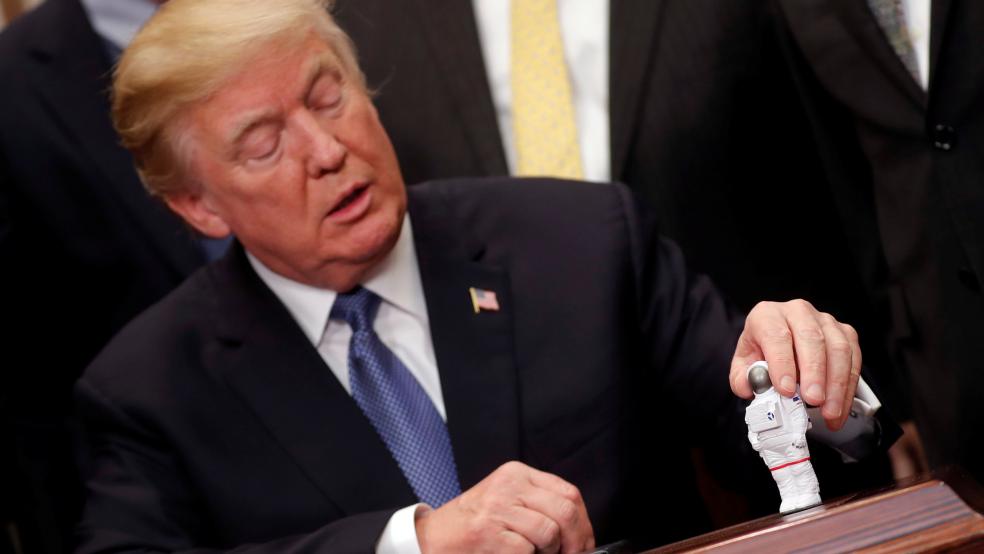The Trump administration wants to spend $8 billion over the next five years to establish the U.S. Space Force as a sixth branch of the military, Vice President Mike Pence said Thursday.
In a speech at the Pentagon, Pence said that recent advances by rivals including China and Russia necessitate the creation of a military force focused exclusively on space. “Our adversaries have transformed space into a warfighting domain already and the United States will not shrink from this challenge,” Pence said.
Pence outlined numerous steps the administration plans to take as it works toward establishing a Space Force, possibly as soon as 2020, including the creation of:
- a new civilian position within the Pentagon, assistant secretary of defense for space
- a United States Space Command drawing on all branches of the military
- a Space Development Agency focused on new technologies
- a Space Operations Force to develop leadership and a community of experts.
Additionally, Pence said that next year the administration would request $8 billion from Congress to be spent on space security programs that would eventually be folded into the Space Force.
Congress, which would need to authorize the creation of a new branch of the military, did not provide funding for the Space Force in the 2019 National Defense Authorization Act, and the administration said it will request funding in the president’s 2020 budget set for release in February. It’s not clear if the $8 billion would be drawn from existing funds that are currently dispersed across various branches of the military or an additional defense funding request.
The Air Force currently oversees much of the nation’s military effort in space, but the idea of creating a separate branch of the military to handle that mission has been kicking around for years. More than 30 years ago, the General Accounting Office called for the creation of a separate Space Force that would build ''a constellation of laser battle stations in space'' to address the growing threat from the Soviet Union.
The idea has long encountered resistance in the Pentagon, especially from the Air Force, which stands to lose funding and control over space-based assets and strategies. Space Force supporters say that Air Force leaders are simply protecting their bureaucratic and budgetary turf while remaining focused on conventional air superiority. But the Air Force, which has operated a Space Command since 1982, counters that it already sees “air and space superiority” as one of its core missions.
Defense Secretary James Mattis has been among the skeptics who worry that a new branch of the military would create unnecessary and wasteful layers of bureaucracy while reducing rather than encouraging cooperation between existing branches. Writing to Sen. John McCain last year, Mattis said that he opposed the creation of “additional organizational layers at a time when we are focused on reducing overhead and integrating joint warfighting functions.” In recent weeks, however, Mattis has spoken more positively about the idea.
Writing in May on the heels of President Trump’s speech at West Point in which he mentioned his tentative plan to create a Space Force, another skeptic, retired Air Force major general Charlie Dunlap, wrote:
[T]he way to address emerging security challenges in space is not to try to carve out another military fiefdom, but to seek holistic, cross-domain, and cross-service solutions. Further balkanization of the armed forces will only delay getting to where the Nation needs to be with respect to the security challenges of space.
Congress will have the final say in the creation of the Space Force, but it’s too early to speculate on its political viability. Rep. Mike Rogers (R-AL), who sits on the House Armed Services Committee, said he was “thrilled” with the plans announced by Pence. But Sen. Brian Schatz (D-HI) said Thursday that Space Force “won’t happen” and was moving forward only “because no [Republican] is willing to tell POTUS it’s a dumb idea.”




